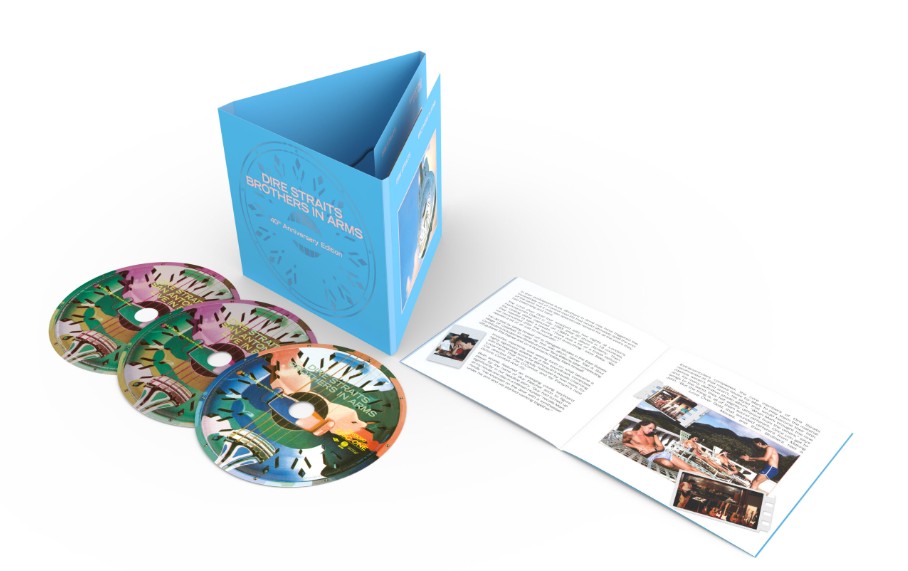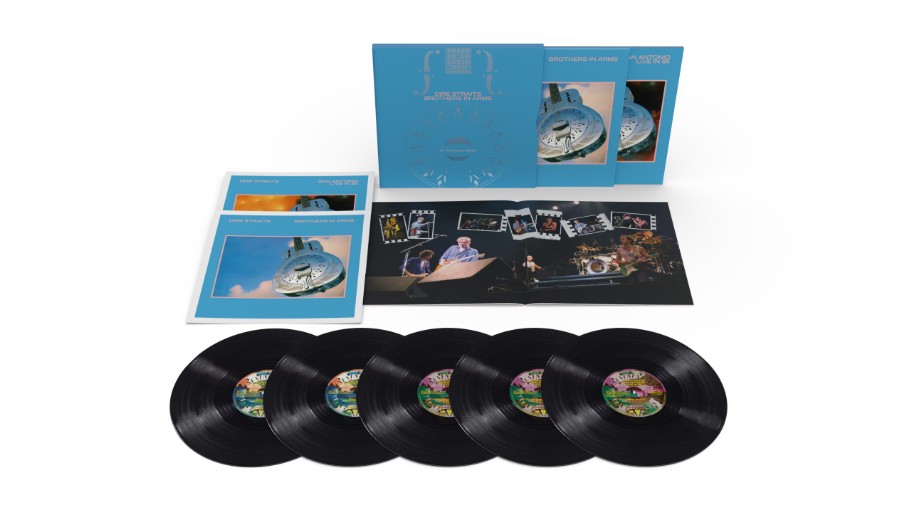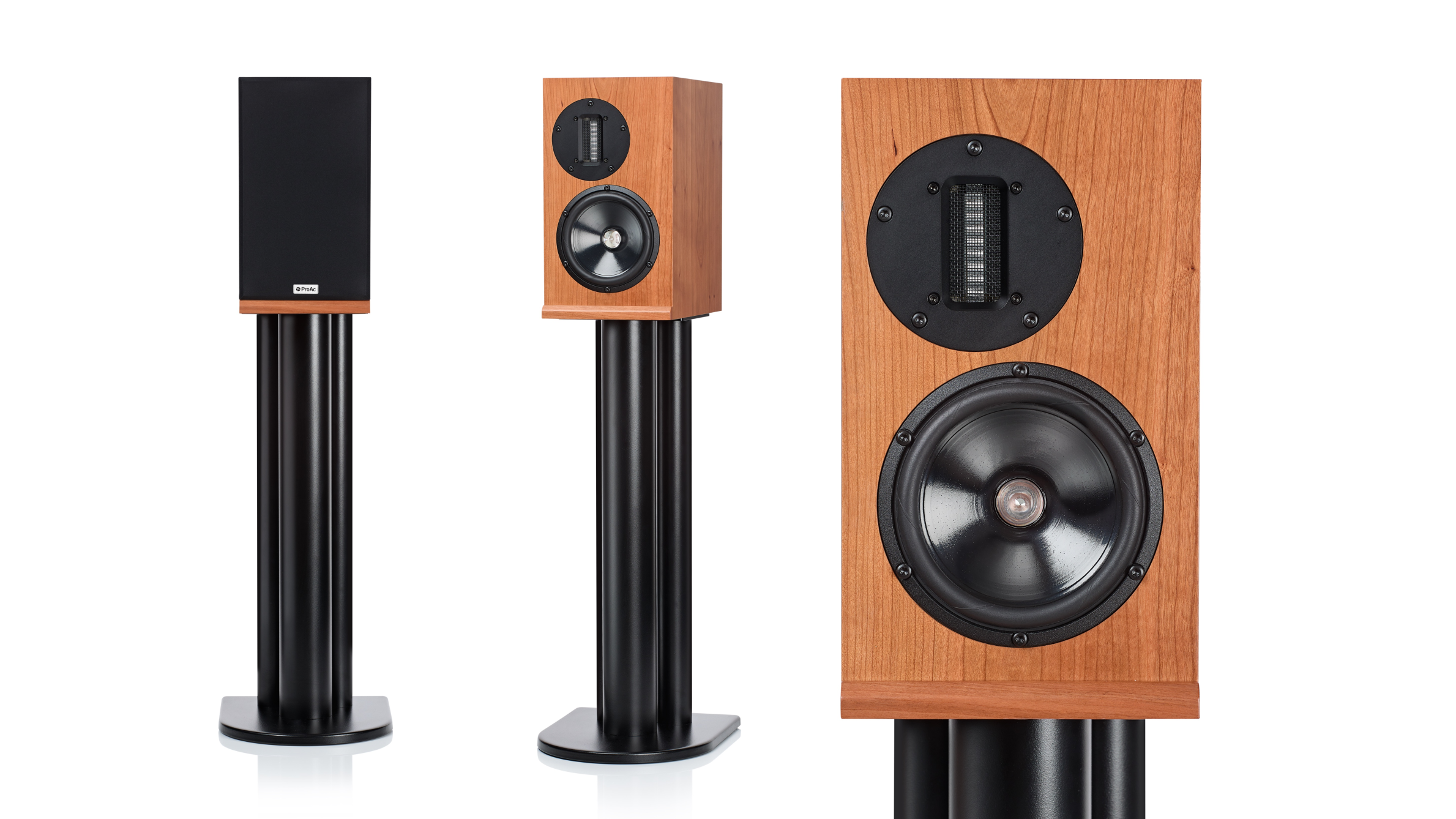Here’s why audiophiles still love Dire Straits’ Brothers In Arms 40 years on
Now look at them yo-yos, that's the way you do it

The latest hi-fi, home cinema and tech news, reviews, buying advice and deals, direct to your inbox.
You are now subscribed
Your newsletter sign-up was successful
This month, Dire Straits’ Brothers In Arms album, which includes its iconic track, Money For Nothing, turned 40.
To celebrate, the band has released a new special edition LP and CD of its fifth album, and our sister magazine, Classic Rock, has penned a long-form deep dive on it for its Summer issue, which goes on sale 20th June.
As a keen music fan, I felt the need to offer a personal celebration of the album, and take a look at why it remains relevant to this day for hi-fi fans. And boy, is it still relevant!
If you go into any hi-fi store, listening room or audio showroom, there’s a strong chance you’ll be treated to at least one Dire Straits track. In engineering circles the band’s work is also still commonly used when developing or testing new products ahead of launch.
You will even occasionally hear the band playing in What Hi-Fi?’s listening rooms, where to this day we use Dire Straits tracks to test everything from high-end speakers to – thanks to a recent resurgence in popularity – CD players.
Yes, you read that last part right; talk to any record store owner and you’ll hear them gleefully report young people (below 25) are buying CDs again.
This trend is a key reason why the latest sales figures from the Digital Entertainment and Retail Association show that CD sales are flat, not in decline, at the moment.
The latest hi-fi, home cinema and tech news, reviews, buying advice and deals, direct to your inbox.
Like baggy jeans, if you wait long enough, everything comes back into style.
And while the resurgence is awesome, it’s important to remember that Brothers In Arms is a big reason for CD’s original success, as well as a milestone moment for audiophiles.
Many may not realise it, but Brothers In Arms was the first CD album to break one million sales – a factor that heavily contributed to the format’s subsequent rapid growth.
From a historical perspective, that’s important. We all love a good bit of vinyl, but CDs were a huge step forward for normal music fans that brought a variety of benefits, including the ability to play albums start to finish without swapping sides and skip tracks with the push of a button.
For reference, on average, a single vinyl record can only store around 20 minutes of audio on one side, while a CD can take 74 minutes’ worth of music.
CD players are also much easier to use, not requiring you to know anything about RPM or tracking force.
Just plonk the shiny disc in the marked slot (the right way up) and off you go. Simples. This is why I’m happy to wish the album a happy birthday and revisit it on compact disc.
But on the latter point, while audiophiles’ love of it is tied to the album’s pioneering link to CD, it’s not the main reason it continues to be relevant, at least for me.
In fact, if you’re thinking of jumping on the CD bandwagon and grabbing a copy of Brothers In Arms for quality reasons alone, I have some words of caution.
Though Brothers In Arms is a cracking album that can really showcase any system’s audio chops, you need to remember that music is never just about the format. That’s just one ingredient in the recipe for music magic.
Even the band itself was divided at the time over whether the CD or record version of Brothers In Arms sounded better. This is true of the wider industry as well. Among audiophiles, the ongoing CD vs vinyl war is still far from decided.

Some believe CD quality is better thanks to its uniform digital nature and wider potential dynamic range, others argue there’s a warmth and added “authenticity” with vinyl thanks to its analogue nature.
On top of that, even if you are team vinyl, there are some caveats. Many new pressings use the digital recordings, not the original analogue masters, which is a big problem for some collectors who want the “raw” as-the-musician-intended experience.
Hence there’s still debate about which specific version of the record is best, and why many collectors will only buy old vinyl records in audiophile circles.
In this specific example, if you care about quality alone, you can get Brothers In Arms on Super Audio CD (SACD) – a niche format developed by Sony and Philips in the ’90s designed to replace CDs.
You can also stream it at higher than CD quality on key services including Tidal and Qobuz.
With this in mind, the main reason I still love Brothers In Arms 40 years on is its music, and the stellar job the band and engineers did recording it.
Dire Straits always took amazing care with the recording and mastering of their albums, and Brothers In Arms is a great example of that.
Despite being recorded on, at the time, cutting-edge technology – including the use of a 24-track Sony digital tape machine – the band made sure to not fall victim to negative industry trends.
They never relied on studio wizardry to cover up mistakes, or overly compress the tracks – the latter being a nasty but common practice to this day that makes recordings sound louder, but sacrifices detail in certain parts of the frequency range.
It was this care that let the album reveal yet more detail as each new, more technically accomplished format with a higher quality threshold came out.
If they hadn’t, you wouldn’t hear the difference moving from a basic MP3 on Spotify, up to CD and then a hi-res FLAC stream on Tidal. A format can only reveal what’s already there.
So for me, it’s ultimately the music and care given to recording it that has made Brothers In Arms stand the test of time 40 years on, even in hardcore hi-fi circles.
MORE:
These are the best test tracks we use to review hi-fi
We rank the best speakers we’ve tried and tested
Our picks of the best CD players

Alastair is What Hi-Fi?’s editor in chief. He has well over a decade’s experience as a journalist working in both B2C and B2B press. During this time he’s covered everything from the launch of the first Amazon Echo to government cyber security policy. Prior to joining What Hi-Fi? he served as Trusted Reviews’ editor-in-chief. Outside of tech, he has a Masters from King’s College London in Ethics and the Philosophy of Religion, is an enthusiastic, but untalented, guitar player and runs a webcomic in his spare time.
You must confirm your public display name before commenting
Please logout and then login again, you will then be prompted to enter your display name.
